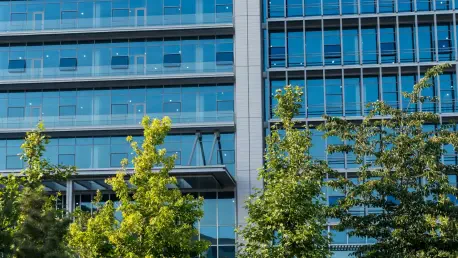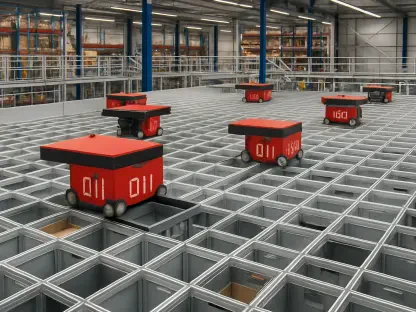In a bustling urban hub like London’s Bankside, where businesses and cultural landmarks intertwine, the push for sustainability has never been more critical, especially amid growing concerns over climate change and the urgent need for greener urban environments. A significant step forward has emerged with the appointment of a dedicated professional to steer environmental initiatives in this vibrant district. This development signals a renewed focus on creating a neighborhood that balances economic vitality with ecological responsibility. Better Bankside, a Business Improvement District (BID), has taken a bold stride by bringing on board an expert to champion its ambitious green agenda. This move is not just a personnel change but a clear declaration of intent to transform Bankside into a model of sustainable urban living. The focus on environmental stewardship, paired with innovative programs, sets the stage for impactful change that could inspire other districts to follow suit. This pivotal moment underscores a commitment to actionable progress in the face of global environmental challenges.
Driving a Green Vision for Bankside
The appointment of Eleanor Holmes as Sustainability Manager marks a turning point for Better Bankside’s environmental strategy. With a robust background spanning four years in business sustainability, Holmes brings a wealth of experience from her previous role at a global organization, where she pioneered frameworks for a circular economy and led impactful training programs. Her new position will see her spearheading a range of initiatives aimed at reducing carbon footprints across the neighborhood. From waste and recycling efforts to green logistics, her work will touch on critical areas that affect both businesses and public spaces. A key aspect of her role involves enhancing biodiversity through thoughtful greening projects, ensuring that Bankside not only thrives economically but also flourishes ecologically. Her hands-on approach is expected to foster collaboration with local stakeholders, creating a unified push toward sustainability that aligns with the organization’s broader goals for a healthier, more resilient community.
Holmes’ enthusiasm for working at a neighborhood level highlights the unique opportunities Bankside offers for innovative environmental solutions. The area’s diverse mix of sectors, coupled with a strong creative presence, provides fertile ground for testing and scaling new ideas. Her role will also focus on the Southwark Climate Collective, a program designed to support small and medium-sized enterprises in decarbonization efforts. Already, this initiative has aided over 140 businesses, including iconic landmarks, in adopting sustainable practices. By building on this foundation, Holmes aims to expand the reach and impact of such programs, ensuring that even the smallest businesses have access to the resources and guidance needed to meet evolving environmental standards. This targeted approach underscores the importance of localized action in addressing global challenges, positioning Bankside as a potential blueprint for other urban areas striving to balance growth with sustainability.
Building on a Legacy of Environmental Leadership
Better Bankside’s commitment to sustainability is not a recent endeavor but a core pillar that has evolved over years of dedicated effort. In the past, the organization secured substantial funding—over £1 million—to support decarbonization initiatives, setting a precedent for urban districts aiming to prioritize green goals. This financial backing has enabled the BID to develop a suite of services, from free recycling programs to carbon literacy training, all designed to equip businesses with practical tools for environmental responsibility. As the organization embarks on its latest five-year term, the agenda has grown even more ambitious, with plans to enhance public spaces through biodiversity projects and offer workshops focused on climate action. These efforts reflect a strategic vision to integrate sustainability into the very fabric of Bankside’s operations, ensuring that every business and resident contributes to a greener future.
The selection of Holmes from a competitive pool of candidates speaks volumes about the organization’s dedication to excellence in this field. Her expertise in circular economy solutions and proactive mindset stood out as key qualities that will drive the sustainability program forward. Under her leadership, Better Bankside anticipates not only continuing its legacy but also scaling its impact through innovative models like the Southwark Climate Collective. The overarching aim is to establish Bankside as a leader in sustainable urban living, where economic success and environmental health go hand in hand. This vision is supported by a clear trend toward embedding green practices into local business operations, a movement that Holmes is poised to accelerate. Her appointment aligns with a broader determination to lead by example, demonstrating how urban districts can adapt and thrive amid pressing environmental challenges with practical, scalable solutions.
Charting the Path Ahead for Sustainable Impact
Reflecting on this significant milestone, the appointment of Eleanor Holmes as Sustainability Manager represents a defining moment for Better Bankside’s environmental journey. Her role focuses on driving tangible climate initiatives, from supporting local businesses in adopting sustainable practices to enhancing the neighborhood’s green infrastructure. Collaborations with diverse stakeholders have been central to her early efforts, ensuring that every project reflects the unique needs and strengths of the Bankside community. Looking forward, the path involves expanding these initiatives with even greater emphasis on innovation and scalability. Businesses are encouraged to engage with upcoming programs, leveraging free resources and training to meet sustainability targets. Additionally, public realm projects aimed at boosting biodiversity offer a chance for broader community involvement. As Better Bankside continues to refine its approach, the focus remains on creating a replicable model that other urban areas can adopt, paving the way for a future where sustainability is not an option but a fundamental aspect of city life.









